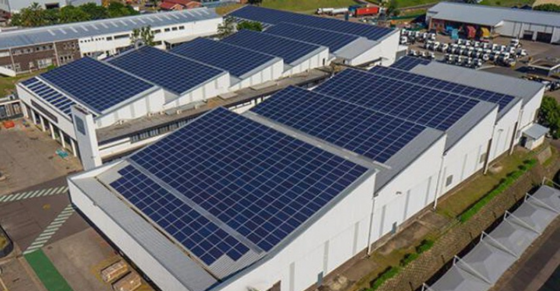Study of clearing mechanisms in rooftop solar power trading in Vietnam
The Deputy Prime Minister of Vietnam requests additional research on solutions for the excess rooftop solar power fed into the grid and purchased by EVN, which can be considered for offsetting when citizens purchase electricity from EVN.

Study of clearing mechanisms in rooftop solar power trading in Vietnam (Image from Internet)
Study of clearing mechanisms in rooftop solar power trading in Vietnam
On July 26, 2024, at the Headquarters of the Government of Vietnam, Deputy Prime Minister Tran Hong Ha chaired the meeting based on the proposal of the Ministry of Industry and Trade of Vietnam on the development and issuance of a Decree stipulating mechanisms and policies to encourage the development of self-produced self-consumed rooftop solar power and a pilot scheme for offshore wind power development in Vietnam.
Regarding the Decree stipulating the mechanisms and policies to encourage the development of self-produced self-consumed rooftop solar power, in Notice 356/TB-VPCP dated July 30, 2024, the Deputy Prime Minister stated that the stipulation of mechanisms and policies to encourage the development of self-produced self-consumed rooftop solar power is a very important policy to mobilize social resources for promoting renewable energy development, meeting the expectations of the public and businesses, contributing to reducing the State's investment pressure on developing power sources, especially the development of renewable energy with storage systems. This is a critical basis to soon adjust the structure of power sources, reducing the use of fossil energy and greenhouse gas emissions in line with commitments at COP26. Therefore, to expedite the progress of developing this Decree, ensuring quality, feasibility, and appropriateness when the Decree is issued and put into practice effectively, with no loopholes for policy exploitation or creation of a give-and-take mechanism, the Ministry of Industry and Trade is requested to:
(1) Complete the concept of “self-produced, self-consumed” for rooftop solar power, including adding the rate of surplus electricity sale to clarify the connotation of self-produced, self-consumed solar power, whereby 90% of the produced electricity is self-consumed and no more than 10% is sold to the national power grid; Study and base on the practical situation of power sources and the structure of power sources according to the specific characteristics of each region to create incentive policies for mobilizing solar power in each area, accordingly, study and calculate reasonable scientific bases to stipulate the rate of surplus electricity sale to the grid, such as in the Northern region the allowed sale rate is 20% of total capacity; the Central and Southern regions have an allowed sale rate of 10% of total capacity. Determine that the rooftop solar power capacity structure in the Northern region should be given higher priority than other regions (due to the low mobilization rate in the Northern region, high load which can be higher mobilized).
(2) Clarify the regulations on electrically connected to the national grid and non-connected electricity: For rooftop solar power that is not connected to the national grid system, there will be no capacity limit, and the registration procedures should be maximally simplified, with minimization of processing time for this form. For electricity connected to the national grid, consider equal application in the Decree to users or renters of solar power systems.
(3) On the issue of controlling power system safety: stipulate the responsibility of rooftop solar power investors with an installed capacity of 1 MW or below 1 MW to have an agency (Electricity Corporations/District Electricity Authority) regulate the inspection, control, and have technical solutions ensuring the safety of the electrical grid for self-produced, self-consumed rooftop solar projects in case of surplus electricity generation into the national power system for ensuring safe operation of the power system.
(4) On electricity pricing: Further study solutions for surplus electricity generated to the grid that EVN buys, which can be considered for offsetting when people purchase electricity from EVN, or surplus electricity can be bought by EVN at market prices at the lowest price offered in the electricity market. The Decree specifies the principle of electricity pricing, with specific prices to be considered and decided by the Ministry of Industry and Trade in coordination with the Ministry of Finance in accordance with the Electricity Law.
(6) Review tax incentive policies according to tax laws for these subjects to enjoy tax incentives under environmental protection laws.
(7) On incentive policies: study and add more incentive policies for the case of investing in rooftop solar power for consumption with the installation of energy storage systems which has the nature of a base power source, therefore, there will be no limit, 100% surplus capacity can be sold, and support plans regarding prices, taxes, interest rates, installation costs can be worked out...
- Key word:
- solar power
- Vietnam
- Number of deputy directors of departments in Vietnam in accordance with Decree 45/2025/ND-CP
- Cases ineligible for pardon in Vietnam in 2025
- Decree 50/2025 amending Decree 151/2017 on the management of public assets in Vietnam
- Circular 07/2025 amending Circular 02/2022 on the Law on Environmental Protection in Vietnam
- Adjustment to the organizational structure of the Ministry of Health of Vietnam: Certain agencies are no longer listed in the organizational structure
- Vietnam aims to welcome 22-23 million international tourists in Vietnam in 2025
-

- Number of deputy directors of departments in Vietnam ...
- 15:04, 05/03/2025
-

- Cases ineligible for pardon in Vietnam in 2025
- 14:43, 05/03/2025
-

- Decree 50/2025 amending Decree 151/2017 on the ...
- 12:00, 05/03/2025
-

- Circular 07/2025 amending Circular 02/2022 on ...
- 11:30, 05/03/2025
-

- Adjustment to the organizational structure of ...
- 10:34, 05/03/2025
-

- Notable new policies of Vietnam effective as of ...
- 16:26, 11/04/2025
-
.Medium.png)
- Notable documents of Vietnam in the previous week ...
- 16:21, 11/04/2025
-
.Medium.png)
- Notable documents of Vietnam in the previous week ...
- 16:11, 02/04/2025
-
.Medium.png)
- Notable new policies of Vietnam to be effective ...
- 16:04, 02/04/2025
-
.Medium.png)
- Notable new policies of Vietnam effective from ...
- 14:51, 21/03/2025

 Article table of contents
Article table of contents
